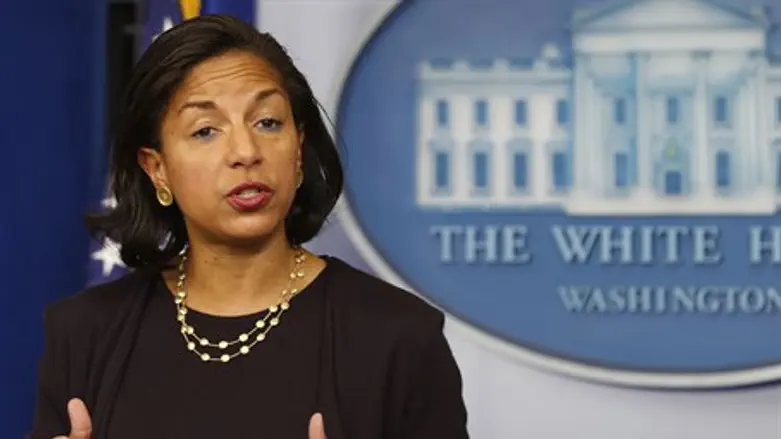
Dennis Ross, who served as US President Barack Obama's Middle East adviser from 2009 to 2011, has revealed in a new book to be published next week that national security adviser Susan Rice is largely responsible for worsening ties with Israel amid the controversial Iran nuclear deal.
In his new book "Doomed to Succeed: The U.S.-Israel Relationship From Truman to Obama,” excerpts of which were posted by Politico on Thursday, Ross writes that Rice's "combative mind-set" made relations between Obama and Prime Minister Binyamin Netanyahu even worse than they were.
For one thing, the ex-Middle East adviser reveals that Rice intentionally kept Israel uninformed on the progress in nuclear negotiations with Iran, despite great concerns in the Jewish state that the leading state sponsor of terror would use the deal to obtain a nuclear arsenal.
In another direct example of Rice's role, Ross writes that in 2013 she neglected to take any action to heal the rift after Obama called Netanyahu in 2013 with an openly hostile tone.
“Had Tom Donilon still been the national security adviser, he surely would have understood that there was a problem, and he would have immediately spoken to his counterpart,” Ross writes. “By contrast, there was no call from Susan Rice.”
Far from calling Netanyahu, Ross describes Rice as making a racial comment in delegitimizing Netanyahu's concerns.
"In her view, the Israeli leader did everything but ‘use the N-word in describing the president,'" writes Ross.
He concludes that the management of the Iran talks was conducted in a way that "damaged our relationship with Israel far more than we needed to."
Aside from Rice, the new book also reveals a division of opinions within the Obama administration regarding the use of a military strike to block Iran's path to a nuclear arsenal if diplomatic attempts failed.
Then Defense Secretary Robert Gates and then chairman of the Joint Chiefs of Staff Adm. Mike Mullen "made it clear that we were in two wars in the region and that was quite enough," Ross asserts.
According to Ross, he, then Secretary of State Hillary Clinton, her deputy secretary James Steinberg, and then national security adviser Thomas Donilon "had a different view," and posited that "for coercive diplomacy to succeed,” the Iranians “had to believe we would use force if diplomacy failed.”
Both Gates and Mullen objected to the way they were portrayed in the book, saying they never took military action off the table.